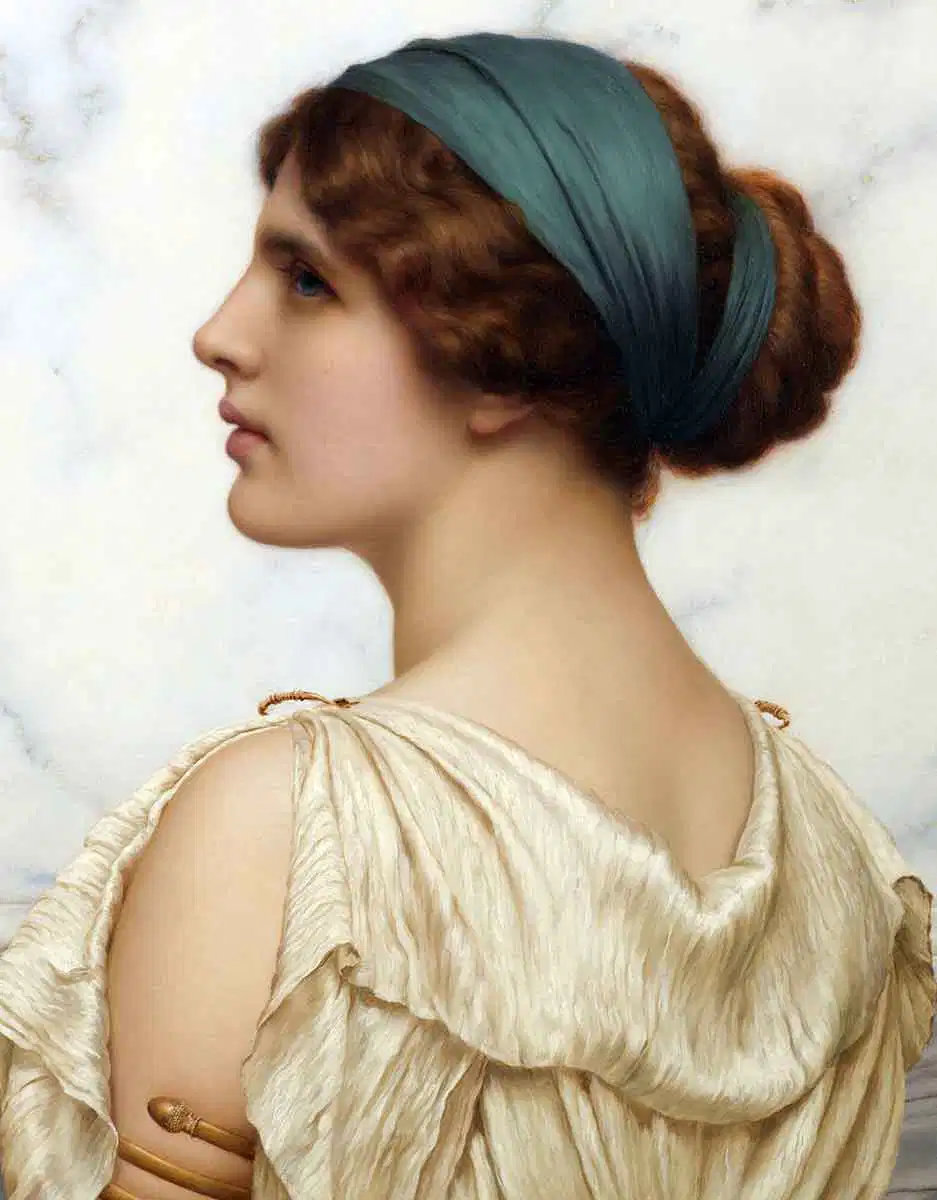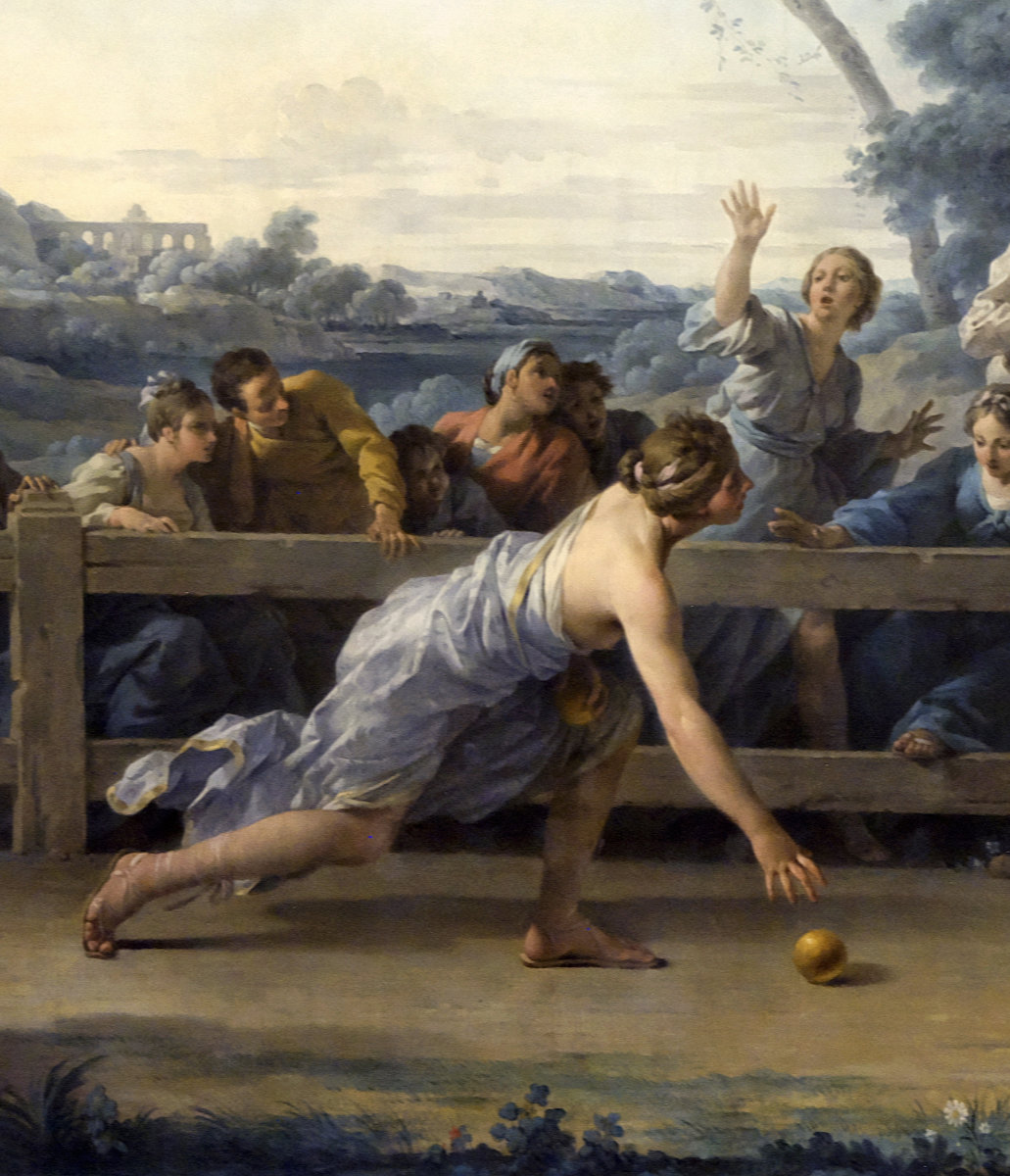The Hunt for the Calydonian Boar is an ancient Greek myth that unites some of the most renowned heroes from pre-Trojan mythology to defeat a boar sent by a vengeful goddess threatening to destroy the lands of Calydon. This often-neglected legend connects the quest of Jason and the Argonauts with the epic feats of the Trojan War. Despite the presence of these famous heroes, only Atalanta, with her sharp eyes, and brave Melenger, manage to injure the beast. Atalanta was born to a father who was deeply disappointed to have a daughter instead of a son. He decided to leave his newborn daughter to die of exposure on Mount Parthenion. However, less than an hour after being abandoned by her father’s servants, Atalanta’s crying caught the attention of a mountain resident. A large bear found Atalanta and took her in, caring for her as if she were her cub. Some versions of the story suggest that the bear had recently lost her cub and, driven by maternal instincts, chose to care for Atalanta instead. Others claim that the mother bear was sent by Artemis, who saw a greater destiny for Atalanta. After being rescued by the mother bear, the baby was later found and taken away by a group of hunters. The men doted on the girl and raised her as their own, giving her the name Atalanta, which means “equal in weight.” This name suggests that the hunters saw her as an equal in skill and ability. Atalanta’s hunting and archery skills surpassed those of her found family over the years. Her speed was unparalleled, and no one could match Atalanta’s swiftness until Achilles came along a generation later. Atalanta’s natural talent as a huntress and child of the wilderness made her a devoted follower of Artemis, and she pledged herself entirely to her virgin goddess, promising never to marry. In one tale, Atalanta was ambushed by two centaurs famous for their speed and skills with the bow. However, Atalanta was quicker and more skilled than them. Before the centaurs could even raise their bows, Atalanta had already loosed two arrows, hitting each centaur faster than their eyes could see. As a result, Atalanta’s reputation soared, and soon, all of Greece had heard stories about the beautiful but shy huntress devoted to Artemis, who surpassed all men in speed and archery.
| Alias Atalanta |
| Real Names/Alt Names Atalanta |
| Characteristics Sailor, Argonauts, Speedster, Bronze Age, Greek |
| Creators/Key Contributors Apollonius Rhodius |
| First Appearance Greek mythology |
| First Publisher ○ |
| Appearance List Literature: Homer’s Odyssey (mentioned, c. 8th century BCE, English 1614), Homer’s Iliad (mentioned, c. 8th century BC), Hesiod’s Theogony (c. 700 BCE), Medea by Euripides (431 BC), poetry by Appolonius, Diodorus, Valerius, Apollodorus, Ptolemy, Pausanias, Hyginus, Tzetzes, Apollonius of Rhodes’ epic poem Argonautica (late 3rd century BC), The Argonautica by Gaius Valerius Flaccus (late 1st century AD), Argonautica Orphica, Dante’s Divine Comedy (briefly, 1308–1320), William Morris’ epic poem The Life and Death of Jason (1867). Film: Jason and the Argonauts (1963). |
| Sample Read The Argonautica [PG] |
| Description The Hunt for the Calydonian Boar is an ancient Greek myth that unites some of the most renowned heroes from pre-Trojan mythology to defeat a boar sent by a vengeful goddess threatening to destroy the lands of Calydon. This often-neglected legend connects the quest of Jason and the Argonauts with the epic feats of the Trojan War. Despite the presence of these famous heroes, only Atalanta, with her sharp eyes, and brave Melenger, manage to injure the beast. Atalanta was born to a father who was deeply disappointed to have a daughter instead of a son. He decided to leave his newborn daughter to die of exposure on Mount Parthenion. However, less than an hour after being abandoned by her father’s servants, Atalanta’s crying caught the attention of a mountain resident. A large bear found Atalanta and took her in, caring for her as if she were her cub. Some versions of the story suggest that the bear had recently lost her cub and, driven by maternal instincts, chose to care for Atalanta instead. Others claim that the mother bear was sent by Artemis, who saw a greater destiny for Atalanta. After being rescued by the mother bear, the baby was later found and taken away by a group of hunters. The men doted on the girl and raised her as their own, giving her the name Atalanta, which means “equal in weight.” This name suggests that the hunters saw her as an equal in skill and ability. Atalanta’s hunting and archery skills surpassed those of her found family over the years. Her speed was unparalleled, and no one could match Atalanta’s swiftness until Achilles came along a generation later. Atalanta’s natural talent as a huntress and child of the wilderness made her a devoted follower of Artemis, and she pledged herself entirely to her virgin goddess, promising never to marry. In one tale, Atalanta was ambushed by two centaurs famous for their speed and skills with the bow. However, Atalanta was quicker and more skilled than them. Before the centaurs could even raise their bows, Atalanta had already loosed two arrows, hitting each centaur faster than their eyes could see. As a result, Atalanta’s reputation soared, and soon, all of Greece had heard stories about the beautiful but shy huntress devoted to Artemis, who surpassed all men in speed and archery. |
| Source Atalanta – Wikipedia |


